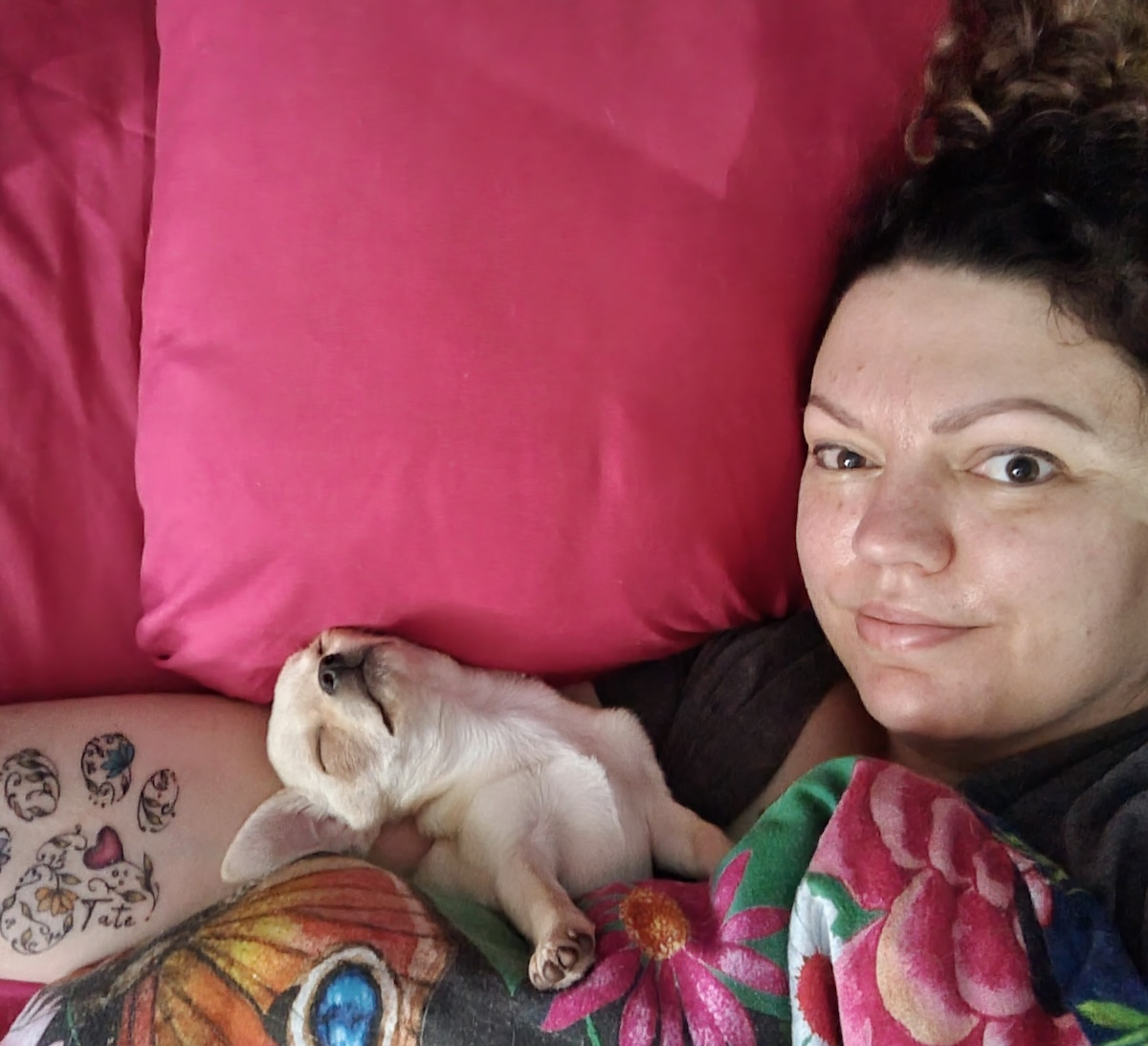Hi, I’m Dr. Karyn! Read my introduction to learn more about me and my five funny dogs, Poppy, Bailey, Kodah, Ned, and Fred.
I hate when people use stereotypes on dogs. I hate it even more when they turn out to be right! Chihuahuas have long been labeled as yappy, bitey, demanding, and notoriously hard to toilet train, and Ned & Fred have lived up to all of these. Fortunately they are also loving, loyal, affectionate, and highly entertaining.
Toilet training has been one aspect of dog ownership that I thought I’d mastered, with my love of crates playing a significant role in my success. Dogs usually avoid toileting in their bed, so keeping them in their crate overnight, and for half an hour after meals, meant that I could take them outside from the crate and celebrate when they went to the toilet outside.
The problem with a tiny Chihuahua pup is that, even in quite a small crate, they can maintain a good distance between themselves and any offensive waste, so we weren’t getting the usual success with this method. Fortunately, they had settled well in their crates overnight, feeling safe and secure in their little bedroom, and seemed happy to be left in there when we went out. So this is when we tried something unconventional.
Swapping Crate Training for Bed Training
It started with Ned, who was the first in our house, and the first in our bed. Snuggled close against my chest at night, he never went to the toilet in our bed, and always waited for me to take him outside in the morning. Ned will only get up and down from our bed using a little step, and he has to squeeze past me to get to it. Sometimes he’ll wake me up earlier than I’d like, by gently pushing on my hip, but he has never had an accident in the bed.

So, when Fred came along, after he had proven content to be left in the crate without fuss, we tried the same method of overnight toilet training. And it has worked…sort of. Fred is fearless, and has no hesitation in launching off our rather tall bed, so I have a very small window of time between hearing him hit the floor, and getting him downstairs and outside. I am not always successful.
Another hurdle is the incredible stubbornness of Chihuahuas. I have stood outside for 30 minutes in sleet and rain, with Fred staring back at me, surprisingly unfazed by the inclement weather. Within five minutes, I find a sneaky puddle or nugget behind a door, which he manages to do unseen!
Toilet Training Obstacle Course
The problem with these tiny dogs is that it’s a lot easier to spot a big dog in the act, allowing you to say “stop!” and take them straight outside. I cannot tell you how many times I’ve spotted a pool of urine behind the sofa or a tiny poop beside my desk, when I was literally sitting right there! How did I not see it happen??
The result of their sneaky habits meant that they were receiving strong, positive reinforcement when they were toileting outside, and a neutral response to going inside, so there was no real deterrent to pooping in the warm comfort of home. And so, another new approach was needed: physical obstacles.

We’ve put up a stair gate to block access to my office (which, to be fair, is where the cats’ litter boxes are, so they could be forgiven for thinking that room is a toilet), used pillows to stop them getting behind the sofas, and have even erected a blockade around the base of our bed to prevent underbed poops. By preventing access to their favorite indoor latrine areas, we have the opportunity to spot the Chihuahuas searching for the ‘ideal spot’, allowing us to turf them outside.

The Upside of the Tiny Dog
Despite the frustration of taking over a year to housetrain Fred (though there is still the occasional indoor accident), one benefit of the tiny dog is that the accidents are also tiny. Their other saving grace is that, luckily for them, even when they’re naughty, they are so irresistibly cute!

- Read her previous article: Who’s The Boss? Debunking The Dominance Theory
- Read her next article: The Harsh Reality of Life with 10 Pets Part 1: Dogs Don’t Take Days Off











